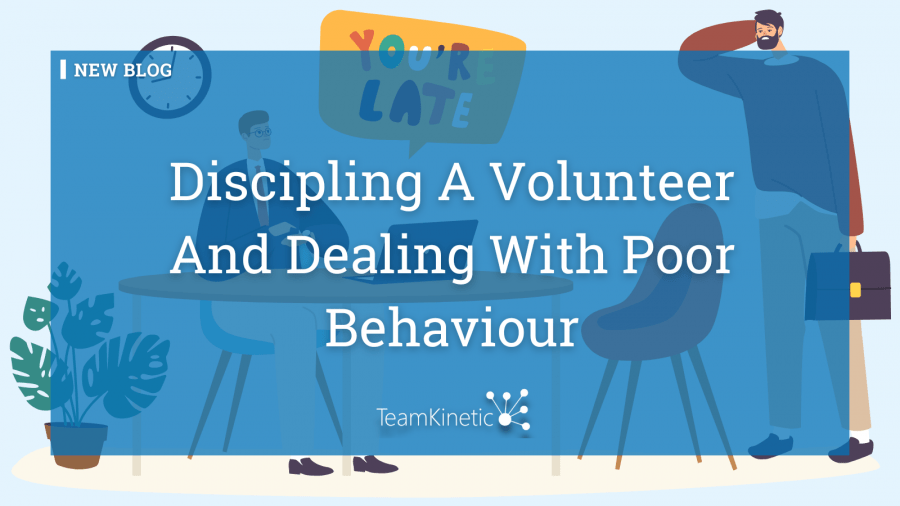Discipling a volunteer is never an easy task. As volunteers aren’t paid employees, some volunteer managers may feel as though they don’t have a right to discipline or even dismiss them. However, volunteer managers can’t put up with problematic behaviour just because they may feel guilty for having to discipline them. Keeping a volunteer on board with poor behaviour also might do more harm than good for your organisation and other volunteers around them.
Before deciding if you should dismiss a volunteer it is essential to step back and find the main cause of the problem. The volunteer may not understand their job role or are going through something in their personal life which could be affecting their behaviour. Getting another person’s perspective on the situation may also help you make a decision.
How to deal with problematic behaviour
The problem could be that the volunteer simply lacks a strong work ethic or lacks skills for the role so it can’t be completed correctly or they aren’t the right fit for volunteering for a particular organisation.
Once the reason for the behaviour is pinpointed then it’s important that the conversation had with the volunteer is face to face and not done over email. The conversation can be warning them about their behaviour and simply giving them a chance to improve or to dismiss the volunteer if they have extremely poor behaviour and it is affecting other volunteers within the organisation.

It needs to be upfront and direct and you should ensure you are not tip-toeing around the subject just because you may feel bad. Including some affirmations in the conversation may help you feel better when dismissing the volunteer.
For example, thanking them for their positivity for volunteering but letting them know their behaviour isn’t acceptable. A follow-up conversation is also a good idea to have after you have either dismissed the volunteer or given them a warning.
As a volunteer manager, you should always document your volunteer’s behaviour, this way you can note down any behaviour traits before and after the conversation to see if the volunteer’s behaviour has changed and improved.
How to avoid this in future
Be careful not to treat volunteers the same as you’d treat employees. Employees are getting paid to give up their time and have access to a lot of employment rights which volunteers don’t have access to.
Due to organisations not being obliged to have a formal agreement with their volunteers, it is still important to create one for your organisation so volunteers are aware of how to act and it can help establish expectations.
Ensure you have a policy that states how you treat disciplinary action with volunteers and your expectations for volunteers’ behaviour. Having a policy also shows your volunteers that they are important to you.
Key takeaways…
Communicating with your volunteers is crucial to ensure you have a comfortable relationship with them. This way if they start to show signs of bad behaviour, it can be discussed easily and put to a stop.
You can find TeamKinetic on social media and listen to our podcast:
Twitter Facebook LinkedIn YouTube Instagram Podcast
Have you enjoyed using TeamKinetic? If you could leave us a review, we’d really appreciate it!

Leave a Reply